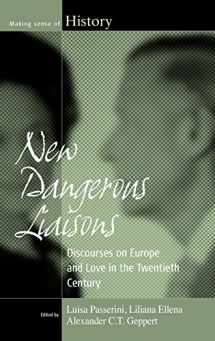
New Dangerous Liaisons: Discourses on Europe and Love in the Twentieth Century (Making Sense of History, 13)
Book details
Summary
Description
In Europe, love has been given a prominent place in European self-representations from the Enlightenment onwards. The category of love, stemming from private and personal spheres, was given a public function and used to distinguish European civilisation from others. Contributors to this volume trace historical links and analyse specific connections between the two discourses on love and Europe over the course of the twentieth century, exploring the distinctions made between the public and private, the political and personal. In doing so, this volume develops an innovative historiography that includes such resources as autobiographies, love letters, and cinematic representations, and takes issue with the exclusivity of Eurocentrism. Its contributors put forth hypotheses about the historical pre-eminence of emotions and consider this history as a basis for a non-Eurocentric understanding of new possible European identities.


We would LOVE it if you could help us and other readers by reviewing the book
Book review



